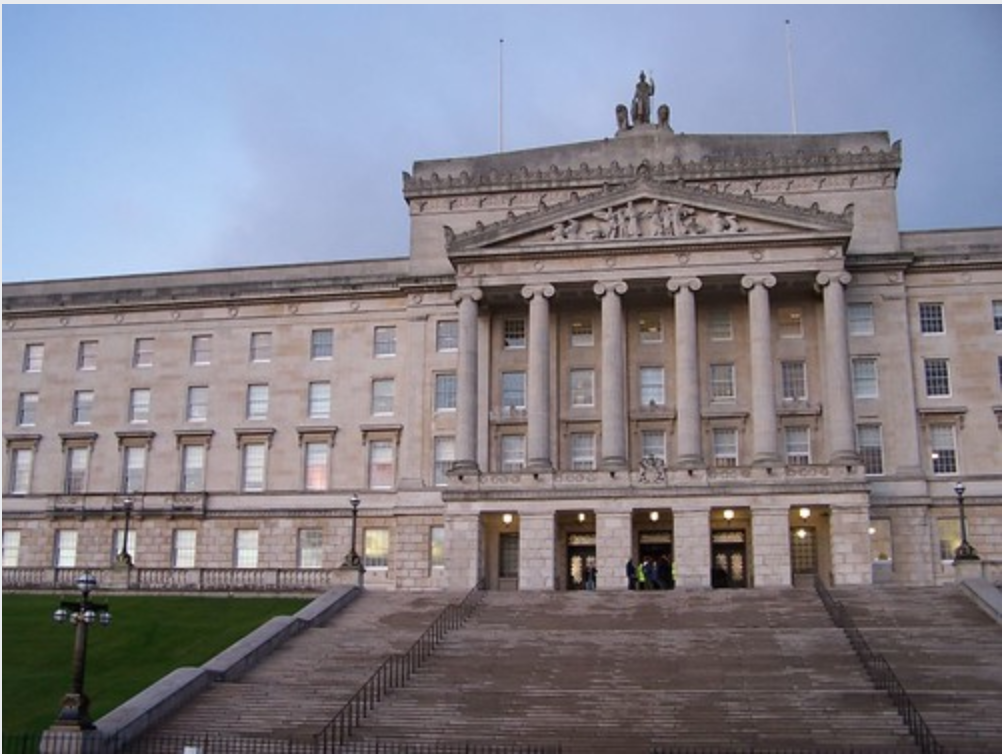Henry Jarrett (University of Exeter)
In February 2017, I was invited to address Masters students at a conference at the University of Poitiers with the broad theme of ‘Life after Brexit’. I decided to focus my talk on the potential political, social and cultural impact of Brexit on Northern Ireland, much to the bemusement of many in the audience, as at the time this was considered by most to be of marginal concern. However, even a stopped clock is right twice a day! In the coming years, Northern Ireland proved to be one of the most significant sticking points in the Brexit negotiations, with issues relating to the single market, customs union and the border taking precedence, and was pivotal in the failure of Theresa May to secure a parliamentary majority in favour of her deal. Under Boris Johnson, however, a solution is thought to have been found by shifting the border to the Irish Sea, which would have the effect of Northern Ireland remaining in the single market and customs union whilst Great Britain diverges. Although this may end the impasse caused by the region’s future relationship with the European Union, there has been much less focus on the current impact of Brexit on politics, and elections in particular, in Northern Ireland.
In June 2016, and in contrast to the United Kingdom overall, Northern Ireland voted to remain in the EU by a margin of 56% to 44%. As the region is a divided society, these figures nevertheless do not tell the whole story. Among unionists, 66% voted Leave and 34% Remain, whilst within the nationalist community, 88% opted to Remain and 12% to Leave. Among those identifying as neither unionist nor nationalist, 70% voted Remain and 30% Leave. The significant unionist/nationalist divergence in support for the UK’s future in/out of the EU unsurprisingly manifests itself in Northern Ireland’s political parties, which are primarily organised along ethnic lines. Whilst the Democratic Unionist Party and the Ulster Unionist Party adopted a broadly pro-Brexit stance, nationalist Sinn Fein and the Social Democratic and Labour Party have remained staunchly in favour of remaining in the EU, in line with their respective support bases. The Alliance Party, the only significant cross-communal party in Northern Ireland, takes the latter stance on this divisive issue.
The European Parliament elections of May 2019 – widely considered in the UK to be driven by Brexit given its imminent departure from the EU – saw a significant change in Northern Ireland. Previously, among the region’s three seats, two were held by unionists (of the DUP and the UUP) and one by a nationalist (of Sinn Fein). In 2019, however, the UUP lost its seat to the Alliance Party, which increased its share of first preference votes under the Single Transferable Vote electoral system from 7.1% (in 2014) to 18.5%. Similarly, at the UK general election this month, Alliance increased its share of the vote in Northern Ireland from 7.9% (in 2017) to 16.8%, winning one of the region’s 18 Westminster seats (North Down, previously held by an independent unionist). Unionist parties also fared poorly at this election, with the DUP losing two of its 10 seats from 2017. An important question therefore exists: are some of the 34% of unionists who backed Remain voting for pro-Remain Alliance in a shift away from the pro-Brexit DUP and UUP?
Before attempting to gauge the possibility of a Brexit effect in recent elections in Northern Ireland, it is important to briefly consider the current political environment in the region. In January 2017, the Northern Ireland Assembly was suspended due to a political scandal involving the then-First Minister, the DUP’s Arlene Foster. Attempts to break the impasse and restore power sharing to the region have since faltered, with the DUP until now opposing Sinn Fein’s demands for same-sex marriage and official status for the Irish language. Political apathy, particularly among unionists, is therefore running high in Northern Ireland and this to an extent explains why unionist parties have lost support. But could Brexit be playing a role? Simply put, it is highly probable. Although it is unfeasible to conduct a survey analysis into how every voter voted and why they chose a particular party, it is significant that cross-communal Alliance won the North Down seat at this month’s general election. The constituency has a substantial unionist majority but, despite this, bucked the unionist trend at the 2016 referendum and backed Remain by 52% to 48%. As such, it is likely that at least some of North Down’s pro-Remain unionists shunned their more traditional party allegiances due to the positions of the DUP and the UUP on Brexit.
Does this suggest the emergence of pro-/anti- Brexit cleavage that is superseding the perpetual unionist/nationalist divide in Northern Ireland? No, but it is nevertheless interesting that Brexit is likely to be having an impact, however small, on how people in the region choose to vote. Future elections could provide a more concrete answer, although this depends on whether and for how long Brexit retains its salience in UK politics. One thing, however, is already clear: Brexit is hugely significant to Northern Ireland and under the terms of Johnson’s deal, that is set to continue until well after the UK leaves the EU next month.
The views expressed in this article reflect the position of the author and not necessarily the one of the Brexit Institute Blog
Henry Jarrett is an Associate Lecturer at the University of Exeter. His monograph, Peace and Ethnic Identity in Northern Ireland: Consociational Power Sharing and Conflict Management, was published by Routledge in 2018
Photo credit: “Stormont” by spacenumbat licensed under CC BY-NC-SA 2.0



